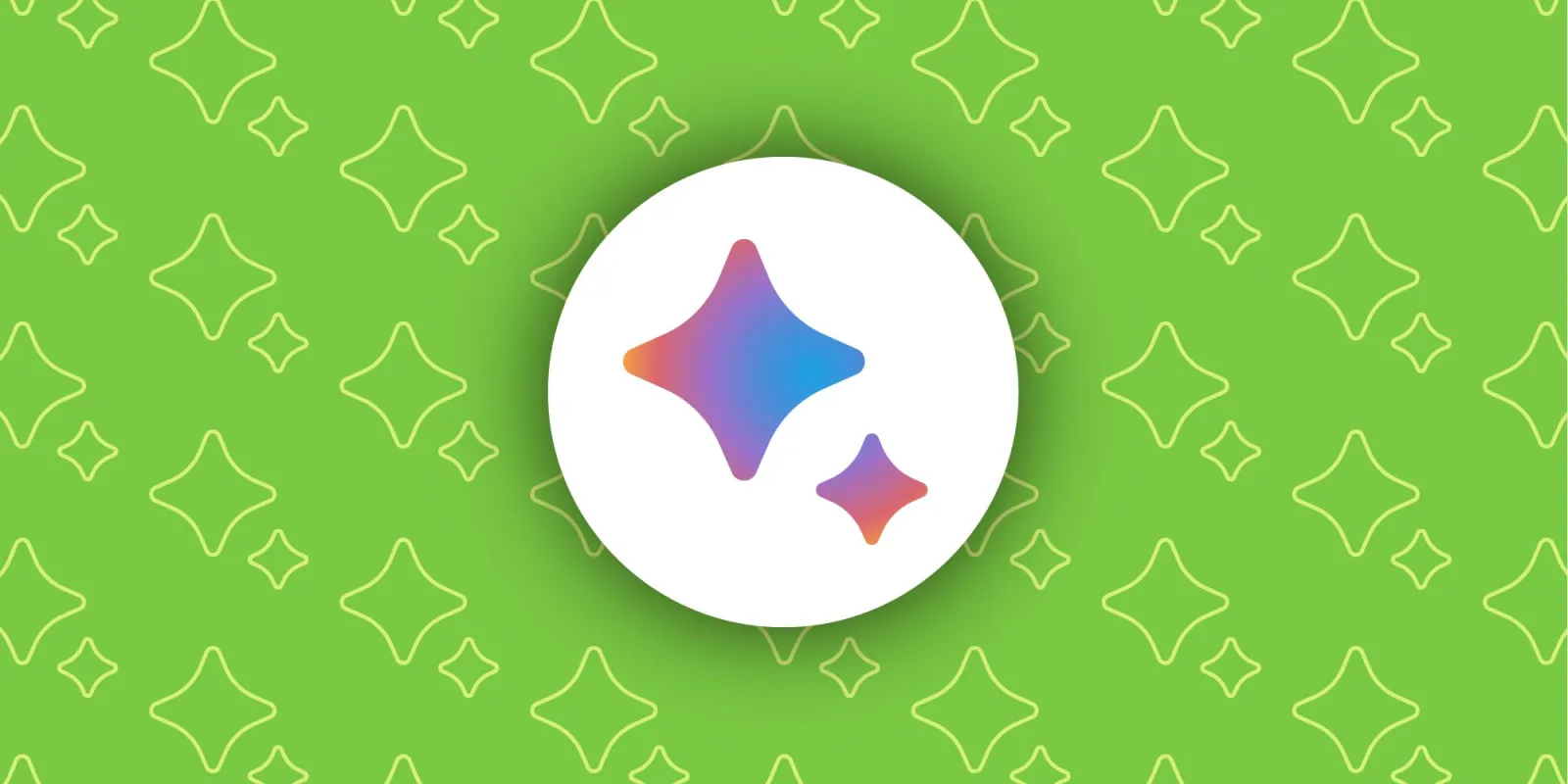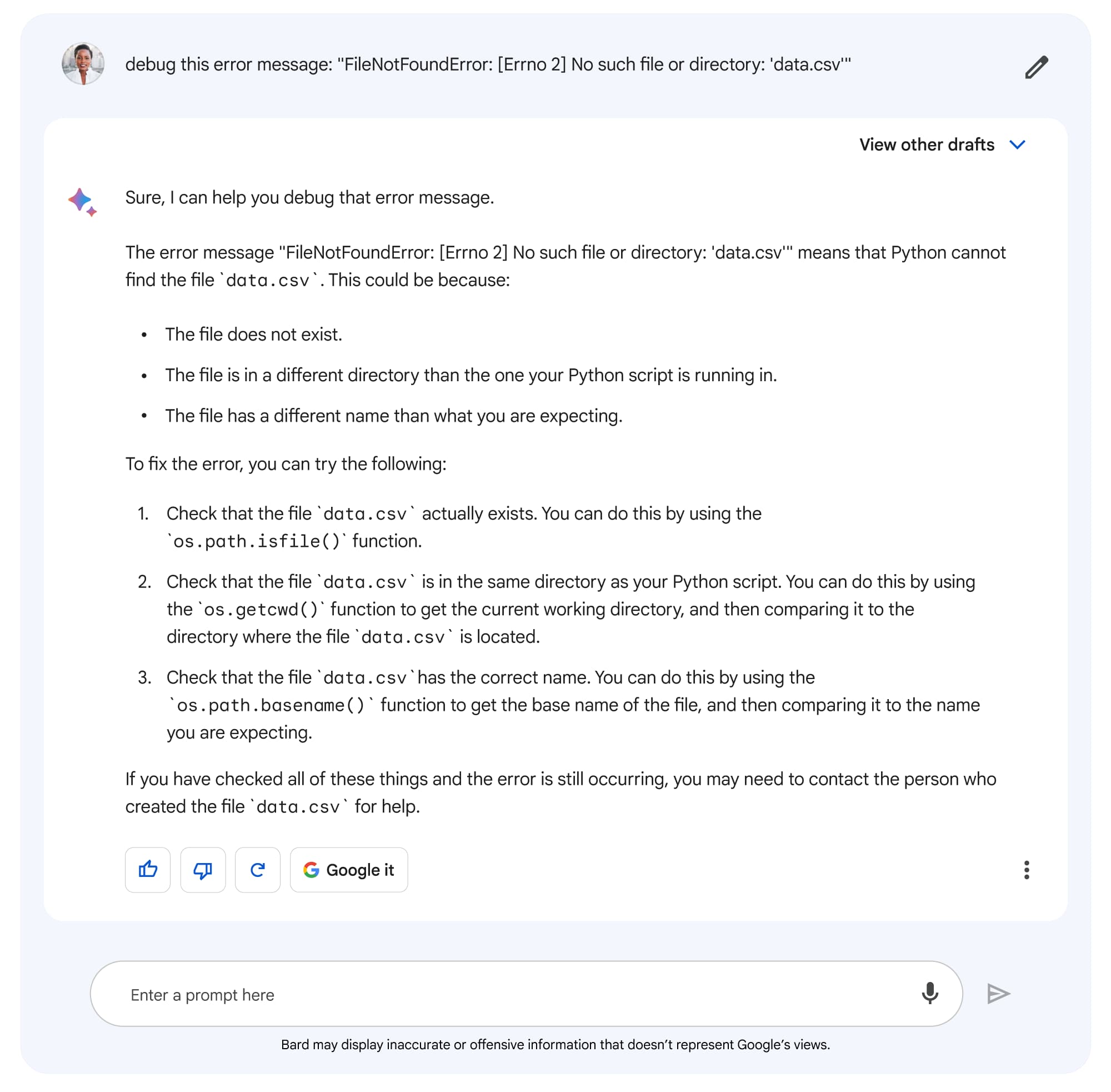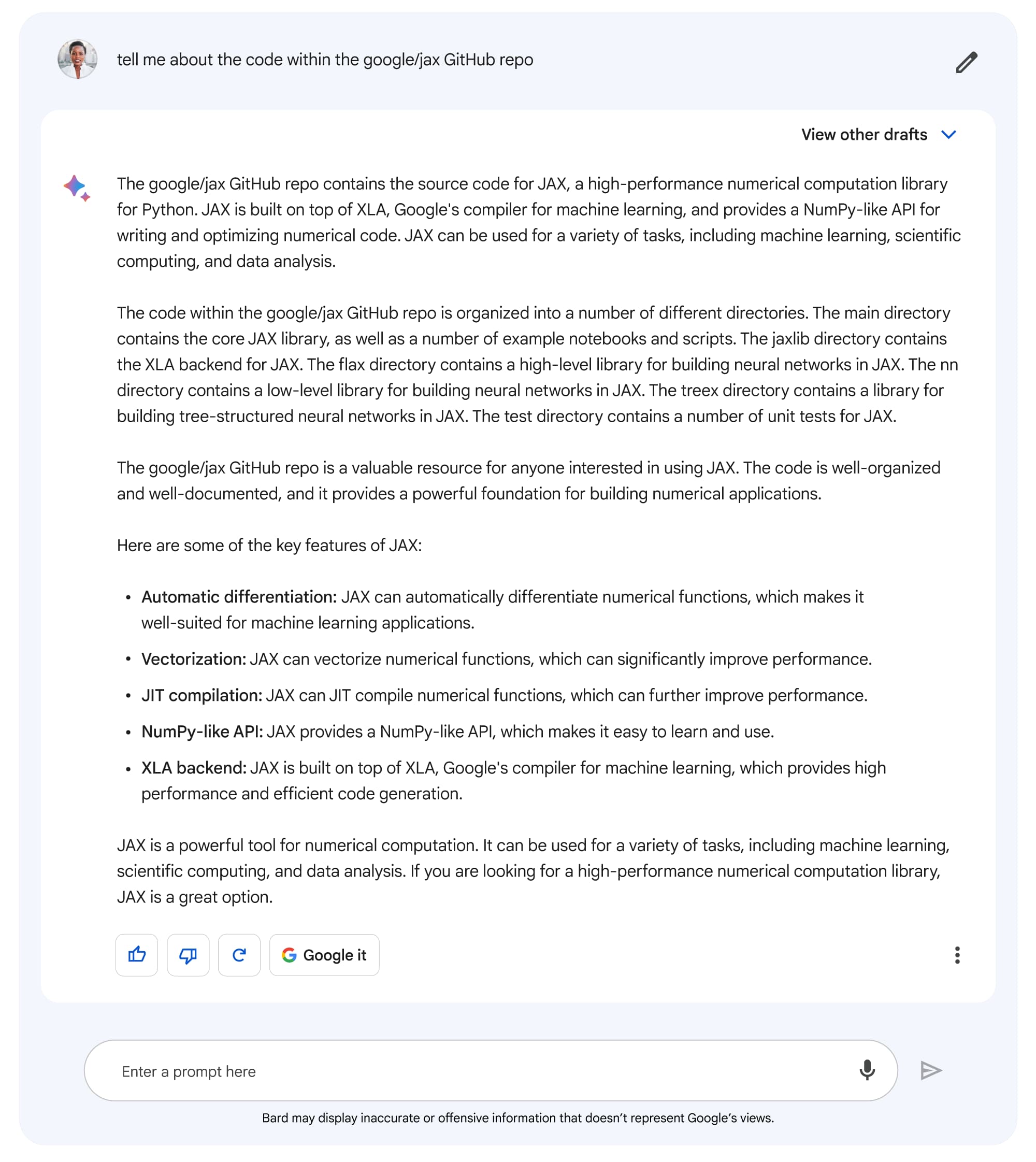
Following math and logic enhancements last month, Google has updated Bard to generate code, as well as debug and explain it. The company says this can “help you by offering new ways to write code, create test cases, or update APIs.”
With new coding capabilities, we’re excited to apply generative AI to accelerate software development, inspire innovation, and help people solve complex engineering challenges.
Google Bard will now accept code prompts with support for over 20 programming languages, including C++, Go, Java, Javascript, Python, and Typescript. With Python, you can export code to Google Colab without copying and pasting. Another integration lets Bard assist you with writing functions in Google Sheets.
New code debugging functionality even works for code that Bard wrote:
If Bard gives you an error message or code that doesn’t do what you intended, just tell Bard “this code didn’t work, please fix it,” and Bard can help you debug.
Besides writing, Bard can explain code snippets, which Google positions as being helpful for those learning or “if you need some additional support to understand what a block of code might output.”
Bard will cite the source if it “quotes at length from an existing open source project.”
In adding this capability, Google reminds users that Bard is an “early experiment.” This means that Bard can “give you working code that doesn’t produce the expected output, or provide you with code that is not optimal or incomplete.”
Always double-check Bard’s responses and carefully test and review code for errors, bugs and vulnerabilities before relying on it.
More on Google Bard:
- Google Bard gets ‘Experiment updates’ changelog
- Google’s next Bard update brings ‘more variety’ to drafts
- Hands on: Bard AI is just as rough around the edges as Google said it was
FTC: We use income earning auto affiliate links. More.







Comments